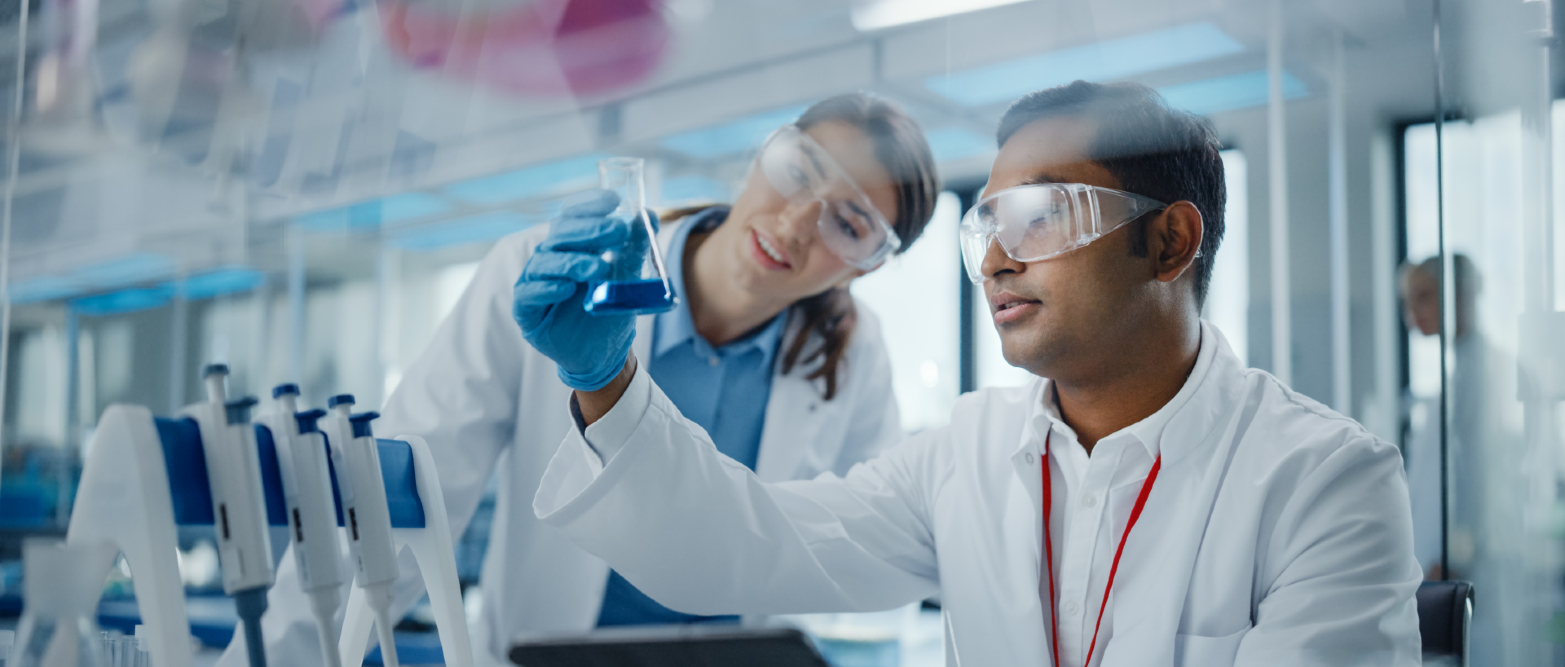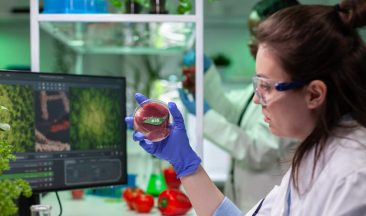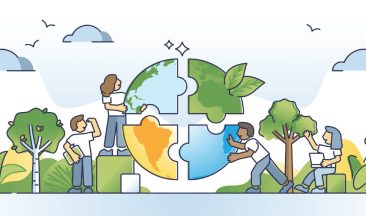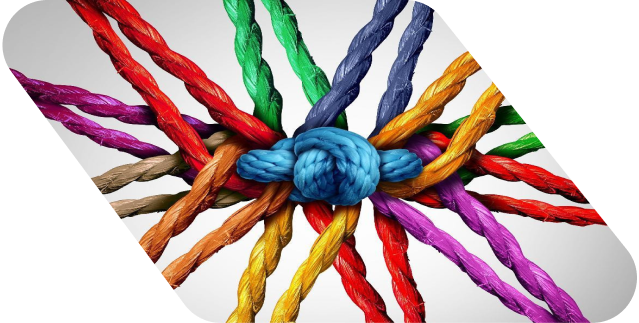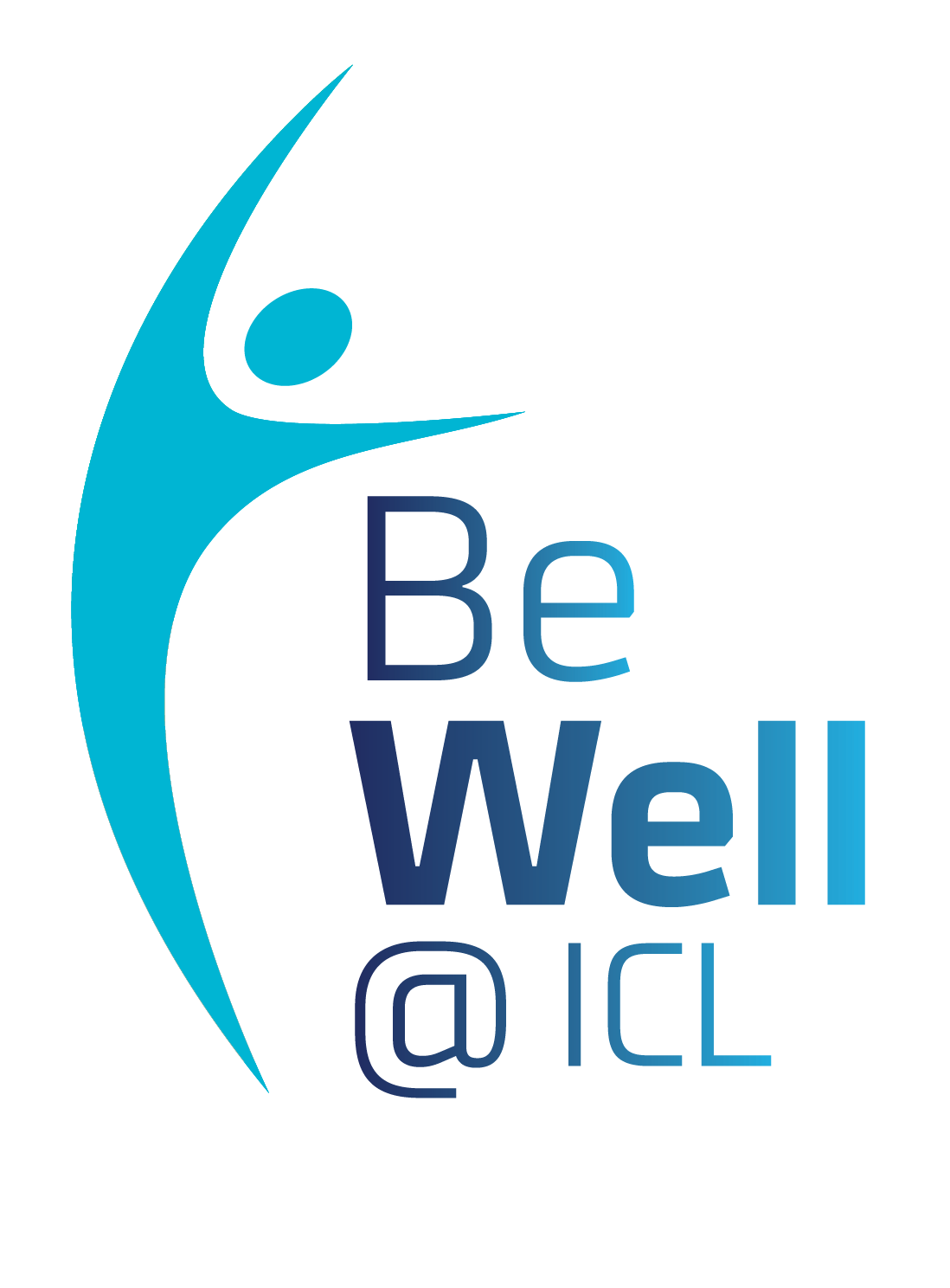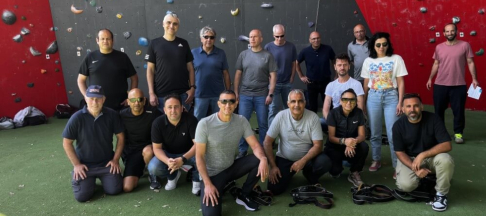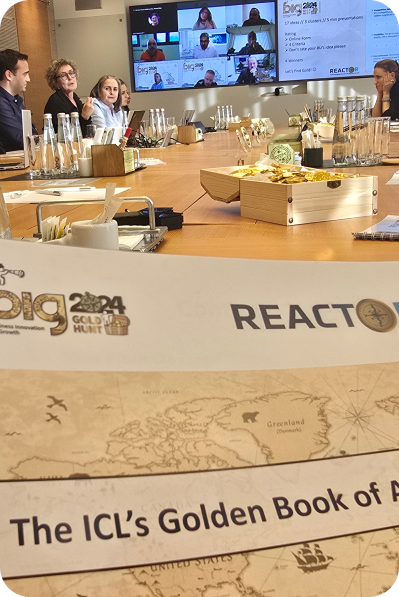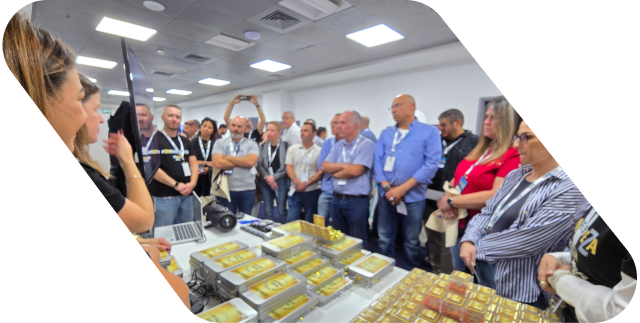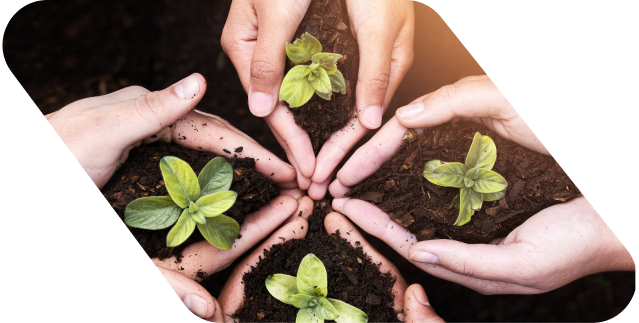Part two of our interview with Ziv Kohav, ICL Open Innovation Lead
In Part 2 of our insight into ICL Open and its interpretation of the open innovation mindset, Ziv Kohav expands on ICL’s specific innovation domains. He details how ICL is recruiting partners for rapid technological innovation and steering vital advances in sectors like agriculture, food, and sustainable energy.
If you’re joining us for the first time in this series, Part 1 of our interview with Ziv Kohav laid the groundwork for understanding the essence of open innovation and how ICL is pioneering this approach to drive technological advancements and collaborations. We covered the basics of what open innovation is, its benefits, and the exciting open innovation challenges that are capturing the imagination of business leaders and innovators. We also explored how open innovation breaks down the barriers of traditional R&D, fostering a culture of collaboration that spans industries and disciplines.
A key takeaway was ICL’s commitment to leveraging this model to not only advance its own strategic goals but also to address some of the most pressing global challenges in agriculture, food security, and sustainable energy. Missed it? We invite you to dive into Part 1 for a comprehensive look at the foundations of ICL’s open innovation journey.
The Power of Open Innovation to Drive Change
A convenient definition of open innovation is a mindset that rejects the limitations of traditional information silos and (unnecessary) institutional secrecy in research. There’s a new generation, at the nexus where scientific research and development meets business development, that is directly experiencing the benefits of open innovation.
Proactive collaboration between existing companies and third parties like startups, researchers, academics (and business scouts) is transforming the high-tech landscape. We’re seeing a rapid acceleration in collaboration and partnerships that bring innovative new ideas directly to professionals in dedicated open innovation platforms.
The result is a flood of disruptive concepts that are being funded and guided through development and the journey to market as viable products. The scale of innovation is greater, the scope is wider, and the time scales are shorter.
Open innovation platforms and programs dramatically increase the survivability of startups. An estimated 90% of tech startups fail, often because they simply don’t achieve a second round of funding at their most critical growth stage. Programs like ICL Open and ICL Planet StartUp Hub are nurturing dozens of promising ventures and supplying them with the resources, expertise, and networks of professional contacts that they need to help them thrive.
ICL Open Lead, Ziv Kohav is here to continue our previous discussion about open innovation. Read on for a deeper analysis of how ICL is enabling innovation, the impact of these exciting initiatives, and practical advice for innovators and technology scouts who want to benefit from ICL’s open innovation ecosystem.
Read our related blog post about open innovation
Read Part One of our interview with Ziv Kohav
The Next Generation ICL Innovation Ecosystem
ICL Innovation has crafted a comprehensive ecosystem that bridges external and internal innovation, covering the full spectrum of startup development. For external innovators, platforms like ICL Open and the Planet Startup Hub provide structured environments and proven methodologies to identify, nurture, develop, and accelerate viable concepts from their early stages to fully operational startups.
In parallel, our global network of 24 R&D centers and the BIG (Business Innovation for Growth) internal innovation accelerator program underscore our commitment to internal innovation, spearheading research and product development across various sectors.
TAMI IMI uniquely serves as a nexus for both internal and external innovation, leveraging ICL’s vast resources and industry expertise to foster groundbreaking projects and collaborative endeavors. This multifaceted approach ensures that ICL remains at the forefront of technological advancements, transforming potential into impactful, market-ready solutions.
ICL traces its earliest origins back to small pioneering mineral exploration enterprises in the harsh wilderness of the Negev Desert. The Group has a century of hard-won experience as an innovative company and is now a leading 21st-century high-tech and AgTech pioneer. ICL has the resources, the knowledge, the professional contacts, and outstanding human talent. It’s uniquely equipped to meet open innovation challenges and bring new technologies to market.
Continuing our exploration of ICL’s approach to open innovation, we shift our focus to the strategic innovation domains that are pivotal to ICL’s mission. Ziv Kohav elaborates on ICL’s strategic focus on open innovation, how these areas are not only integral to the group’s expansion but are also crucial for addressing some of the most pressing global challenges today.

Ziv, could you expand on ICL’s specific innovation domains and how these reflect the company’s strategic vision for collaboration and investment in open innovation?
Our selection of the five core investment domains is deeply intertwined with our strategic vision to not only grow as a company but to also respond proactively to the planet’s most pressing challenges. Each domain was chosen not just for its business potential but for its capacity to contribute significantly to global sustainability goals. Let’s talk about each domain.
- Food Tech Solutions
Our work in food specialties reflects our commitment to meeting the evolving needs of the global food industry, especially as it faces challenges like ensuring food security for a growing population and reducing environmental impact.
By innovating in areas like alternative proteins and sustainable food production, ICL contributes directly to solving these pressing issues. We’re not just responding to market trends; we’re addressing the urgent need for a more sustainable, nutritious, and health-conscious food system.
We’re focused on creating impactful solutions- enhancing textures, reducing sodium, and offering a range of natural ingredients from chelators and preservatives to leavening agents.
We’re particularly excited about our work in alternative proteins, plant-based functional ingredients, and white biotechnology, as they aim to extend shelf-life and support the growing demand for meatless and alternative protein products.
These initiatives are not just business strategies; they’re our contribution to a healthier, more sustainable world. By integrating these innovative solutions into global food-tech advancements, we’re addressing the pressing needs of a growing population and the planet’s well-being.
We are in constant pursuit of solutions in several key areas including:
- Functional Ingredients
- Clean label alternatives
- Alternative proteins
- Natural antioxidants
- Natural texturants
- Natural pH control
- Plant-based protein, and innovative substitutes (at scale)
- Agriculture: Next Generation Fertilizers
In the agricultural domain, our pioneering work on Next gen fertilizers is a direct response to the urgent challenges of enhancing food security and minimizing agriculture’s environmental footprint. Our innovations in nutrient use efficiency and biostimulants are geared towards supporting sustainable farming practices that can feed the world’s growing population.
The fertilizers we develop are at the forefront of innovation— easily absorbed by plants, enriched in nutrients, cost-effective, and safe for various crops. Technologies like organic fertilizers, micronutrients, and biodegradable coatings for controlled-release fertilizers, alongside our efforts in creating efficient slow-release fertilizer granules, are paving the way for sustainable agriculture.
We’re committed to advancing crop nutrition technologies that not only meet the immediate needs of farmers but also address the long-term challenges of food security and environmental sustainability.
We are actively seeking solutions in several critical areas to further our mission:
- Enhanced Efficiency Fertilizers
- Biostimulants
- Biodegradable CRF Coating
- Nitrogen Fixation
- Organic and complex Fertilizers
- Secondary Nutrient Sources
- Delivery Platform
- Distributed Ammonia Production
- Nutrient Use Efficiency
- Prebiotics & Probiotics
- Innovations for eMobility and Sustainability
We’re also highly focused on discovering cutting-edge technologies and solutions that enhance the safety, longevity, and sustainability of energy storage. This is the key to the success of clean energy and sustainable hybrid grids.
ICL is looking for new chemistries, new materials that serve the battery market, and recycling technologies for existing batteries, especially lithium-ion batteries. Our exploration into the innovative use of minerals is reshaping a broad spectrum of applications for a safer and more sustainable future.
Initiatives are underway to develop safer battery technologies and achieve longer-lasting energy storage solutions. We’re also pioneering new pathways in energy storage beyond batteries.
These efforts underline our commitment to not only advancing energy storage technologies but also to supporting the global transition towards more reliable and environmentally friendly energy solutions.
We are looking for innovative approaches to:
- Cathode material for LMFP batteries
- LiPF6-related technologies
- Electrolytes and additives for batteries
- Zinc Bromine flow cells
- Sodium-ion battery materials
- Li-ion battery recycling
- Lithium extraction
- Novel Materials
ICL has a deep background in specialty minerals and chemicals encompassing a broad range of commodities and products. Our passion lies in discovering innovative products and engineered materials that push the boundaries of what is possible today. We’re looking for groundbreaking materials or new applications of existing ones that have the potential to revolutionize industries.
We are blending the frontiers of big data and electrification with the innovative use of novel materials to forge new paths in industrial applications. This led to the creation of sustainable and innovative products like CareMag® and FruitMag®.
We’re also exploring the potential of natural signaling molecules and other biomimetic approaches, demonstrating our commitment to safety and environmental sustainability. These efforts are key to developing products that not only meet today’s needs but also anticipate tomorrow’s challenges, reinforcing our role in promoting a more sustainable future.
As a leader in the Flame Retardant (FR) market, we’re always exploring new applications and materials. Specifically, we are exploring options for:
- Hal Free FRs for non-epoxy PCB
- FRs for Nylon & PBT with V0 and high CTI > 600 – 1,000
- Non-Hal FRs for ABS
- FRs and EMI-shielding additives for reinforced Polyolefin-based battery case
- Lowest water-soluble FR additive for intumescent coatings
Our fertilizer production presents opportunities for using the same minerals in new applications. We’re looking for:
- Polyhalite – Industrial applications
- Potash production increase
- New applications for P2O5 chain
- Novel industrial applications for Br and P chemistries
And, we’re also looking for:
- Defoamer for high gloss water-based paints
- Eliminating biofilm in industrial water systems
- Digital Agriculture
In digital agriculture, ICL is at the forefront, leveraging big data and AI to transform agricultural practices. We’re providing farmers with AI-powered tools for agronomic decision-making, enhancing visibility across the supply chain, promoting sustainability, and reducing waste.
Our initiatives, like supply chain traceability solutions and curating structured data platforms, are designed to integrate data into sustainable practices seamlessly. We’re on the lookout for new technologies and services that bolster the agricultural ecosystem, with a keen focus on solutions that are farmer-centric and digitally integrated.
This approach not only supports farmers in making more informed decisions but also paves the way for a more sustainable and efficient agricultural future. We are looking for ways to improve:
- AI-powered agronomic decision-making
- supply chain traceability solutions
- curating and structuring data platforms
- leveraging data into sustainability
We’re eager to connect with innovators in all domains who share our vision for a sustainable future! If you’re working on solutions in these areas, we want to hear from you.
What advice would you give to startups or researchers interested in collaborating with ICL?
Good question! It’s something I’m keen to talk about. One thing I’ve noticed is that it’s very easy for external innovators to get carried away with enthusiasm for their new disruptive concept or product idea. OK, you’ve got something original – and it might well be amazing – but slow down and take some more time to look at the landscape. Research ICL and how we operate in the relevant sector. Think in terms of fit and match. Does your product meet one of the unmet needs that we regularly publish?
If it doesn’t directly meet an unmet need, is there something in your concept that is transferable? We’re very good at thinking outside the box. Here’s an example: A company could be in plant protection products and we are not in plant protection, we are in plant nutrition. At first glance, you could say there’s no basis for collaboration. In fact, some of the technologies that apply to plant protection can also apply to plant nutrition. So this could be the basis of a collaboration.
You can also take a look at the sectors that we work in and consider whether your product could match our strategic plan for the future. You might be able to point out an interesting direction or opportunity that we either haven’t seen or have put on hold because there wasn’t an obvious way forward. Again, you’re looking for the fit or the match, but in this case, it’s more of a potential fit.
The other point I’d make is that you should understand that there’s a process of due diligence technological and business – and then executive consideration followed by a contractual and licensing phase. Only then, do we assign your product to a business unit for development and fastrack to market.
I’m absolutely not saying this to put innovators off. Our structured funnel is a major advantage that will dramatically increase your chances of success! Just understand from the outset that the journey from our first meeting to market is years – not months or weeks.
That said, if you have a concept or a product that you believe in, and you think it fits our strategic domains in some way, talk to us now! We’re here to make good things happen, and we’ll do it in a very systematic and effective way. We’re the right people to work with and we absolutely share your passion for new tech and innovation. Working with ICL is an exciting and rewarding experience and you will meet some very friendly and super-talented people who will go the extra mile to make your project a success. These are the real benefits of open innovation.
ICL Open: A Strategic Partner for Innovative Growth
ICL’s Open Innovation platforms contribute to a major ecosystem for investment and growth. The structured open innovation platform is an impressive enabler that defines open innovation challenges and turns them into mechanisms for business development.
Open innovation is contributing to ICL’s expansion in existing markets and to its future growth. Perhaps more importantly, the main thrust of the strategic investment in sectors that will directly benefit the entire human race, either through developing affordable clean energy and reducing impact to the environment, or by strengthening the food supply chain through the development of sustainable agriculture.
ICL is passionate about innovation and has a deep understanding of what makes original thinkers and entrepreneurs tick. The three major ICL open innovation portals – ICL Open, ICL Planet StartUp Hub, and TAMI-IMI Research Institute are designed to deliver the benefits of open innovation through strategic partnerships that actually work.
Join Us at the Forefront of Innovation for a Sustainable Future
At the heart of ICL’s mission lies a bold vision to address some of the planet’s most pressing challenges of today. Our commitment goes beyond business growth, targeting sustainability, food security, and clean energy— it’s about making a meaningful impact worldwide. As we stand at this pivotal point, the urgency for innovative solutions has never been greater.
A Call to Innovators
ICL is in search of transformative ideas capable of reshaping industries and elevating global well-being. From spearheading advancements in next-gen fertilizers to setting new benchmarks in sustainable energy storage and unlocking digital agriculture’s full potential, we invite your innovations to join our mission. ICL is more than a company; it’s a catalyst where your ideas can flourish and effect change on a worldwide scale.
If you’re innovating in startups, academia, private invention, or scouting for breakthroughs and possess solutions that align with unmet needs, contact us! We are ready to explore uncharted territories together, adapting your innovations towards emergent needs and future directions. Connect with us, and let’s initiate the journey.
Why Partner with ICL?
Our legacy in specialty minerals and chemicals, combined with an unwavering dedication to forefront research, positions ICL as an unparalleled ecosystem for innovation. We are eager to collaborate with partners who are as passionate as we are about forging a sustainable, food-secure future.
As we step into tomorrow, your visionary ideas are invited to the discussion table. In collaboration, let’s embark on steering towards a more sustainable future and ensuring a healthier planet for future generations.
